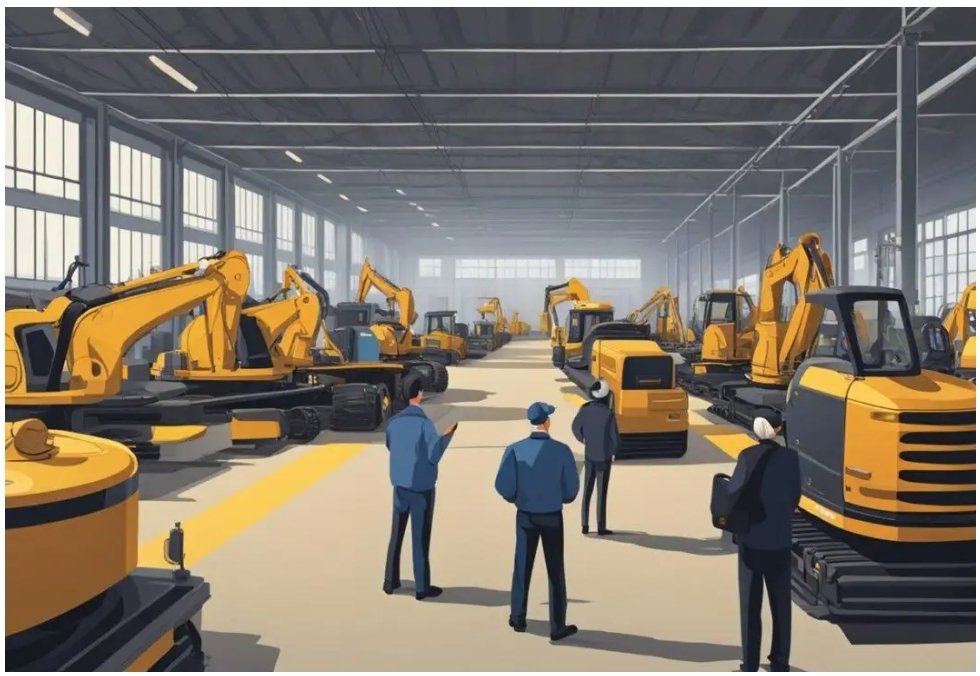Industrial Auctions: Everything You Need to Know

Industrial auctions are a common way for businesses to sell their assets to interested buyers. These auctions can include a wide range of items, such as machinery, equipment, and vehicles. The process of an industrial auction involves the auctioneer presenting each item to potential buyers, who then bid on the item until a final price is reached.
One of the main benefits of industrial auctions is that they can attract a large number of potential buyers from all over the world. This can result in higher prices for the seller, as there is more competition for the items being sold. Additionally, industrial auctions are often faster than traditional sales methods, as the auction process can be completed in a matter of hours or days.
However, there are also some potential drawbacks to industrial auctions. Buyers may not have the opportunity to inspect the items being sold before the auction, which can lead to unexpected issues after the sale. Additionally, the bidding process can be competitive and fast-paced, which may result in buyers paying more than they originally intended. Despite these potential drawbacks, industrial auctions remain a popular method for businesses to sell their assets.
Understanding Industrial Auctions
Industrial auctions are a popular method of selling or buying used machinery and equipment. These auctions are often held online or in-person, and can attract a wide range of buyers and sellers from different industries. In this section, we will explore the different types of industrial auctions, their benefits, and key players in the industry.
Types of Industrial Auctions
There are several types of industrial auctions, including online auctions, live auctions, and sealed bid auctions. Online auctions are becoming increasingly popular due to their convenience and accessibility. These auctions are conducted entirely online, allowing buyers and sellers to participate from anywhere in the world. Live auctions, on the other hand, are held in-person and often involve a fast-paced bidding process. Sealed bid auctions are another type of auction where buyers submit their bids in a sealed envelope, and the highest bidder wins.
Benefits of Industrial Auctions
Industrial auctions offer several benefits for both buyers and sellers. For sellers, auctions provide a quick and efficient way to sell their equipment and machinery. Auctions also attract a large number of potential buyers, increasing the chances of a successful sale. For buyers, auctions provide an opportunity to purchase equipment and machinery at a lower price than buying new. Auctions also offer a wide selection of equipment and machinery to choose from, making it easier to find the right equipment for their needs.
Key Players in Industrial Auctions
There are several key players in the industrial auction industry, including auction houses, brokers, and consignment sellers. Auction houses are companies that specialize in conducting auctions and have a large network of buyers and sellers. Brokers are individuals or companies that help buyers and sellers connect and negotiate deals. Consignment sellers are companies that sell equipment and machinery on behalf of their clients, taking a percentage of the sale price as commission.
In conclusion, industrial auctions provide a convenient and efficient way to buy and sell used equipment and machinery. With a wide range of auctions available, buyers and sellers can choose the type of auction that best suits their needs. By understanding the different types of auctions, their benefits, and key players in the industry, buyers and sellers can make informed decisions and achieve successful outcomes.
Participating in Industrial Auctions
Preparing for an Industrial Auction
Before participating in an industrial auction, it is important to do research on the items up for bid and the auction house hosting the event. Review the auction catalog to determine which items are of interest and their estimated value. It is also important to inspect the items in person if possible to assess their condition and any potential issues.
In addition, bidders should register for the auction in advance to avoid any delays on the day of the event. This typically involves providing personal information and a deposit or proof of funds. It is also recommended to set a budget for bidding and to stick to it to avoid overpaying.
Bidding Strategies
During the auction, bidders should pay close attention to the bidding process and the behavior of other bidders. It is important to remain calm and not get caught up in the excitement of the moment. Bidders should also be aware of the auctioneer’s tactics and bidding increments to avoid overbidding.
One effective strategy is to wait until the end of the auction to bid on items, as prices may drop as the auction nears its conclusion. Another strategy is to bid aggressively early on to discourage other bidders from competing.
After the Auction: Payment and Logistics
Once the auction is over, successful bidders must arrange for payment and logistics. Payment is typically due immediately or within a few days of the auction, and may require wire transfers or other forms of payment.
Logistics may include arranging for transportation of purchased items, as well as any necessary permits or licenses. It is important to communicate with the auction house and any third-party logistics providers to ensure a smooth and timely delivery of goods.
Overall, participating in industrial auctions can be a great way to acquire valuable equipment and machinery at a lower cost. By preparing in advance, using effective bidding strategies, and handling payment and logistics in a timely manner, bidders can maximize their chances of success.



